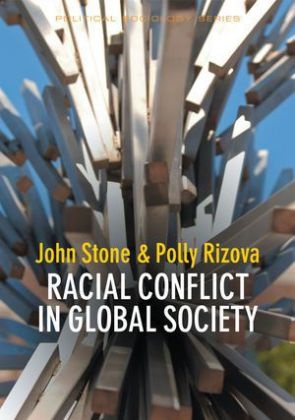Read more
Despite global shifts in world power, racial conflict remains one of the major problems of contemporary social life. This concise and engaging book demonstrates the interplay between identity, power and conflict in the creation, persistence and transformation of patterns of race and ethnic relations across the globe.
Stone and Rizova employ a neo-Weberian comparative approach to explore how evolving systems of group conflict have been - and continue to be - impacted by changes in the world system, global capitalism, multinational corporations, and transnational alliances and institutions. The authors analyse critical debates about 'post-racialism', 'exceptionalism', ethnic warfare and diversity management in global organizations, drawing on cases from South Africa to Darfur, and from global migration to the Arab Spring uprisings. In conclusion, the search for effective strategies of conflict resolution and the quest for racial justice are evaluated from multiple perspectives.
Racial Conflict in Global Society provides stimulating insights into the basic factors underlying racial conflict and consensus in the early decades of the twenty-first century. It is essential reading for scholars and students across the social and political sciences, management and international relations.
List of contents
* Introduction
* Chapter 1. Diversity: Conflicts in the New Millennium
* Chapter 2. Power: The Changing Geo-politics of Race
* Chapter 3. Boundaries: Identity in the New World Disorder
* Chapter 4. Organizations: Challenges Facing Global Institutions
* Chapter 5. Violence: Extreme Racial Conflict
* Chapter 6. Justice: The Search for Solutions
* Notes
About the author
John Stone is Professor of Sociology at Boston University. He is the founding editor of the journal Ethnic and Racial Studies.
Polly Rizova is Associate Professor of Management at Willamette University.
Summary
Despite global shifts in world power, racial conflict remains one of the major problems of contemporary social life. This concise and engaging book demonstrates the interplay between identity, power and conflict in the creation, persistence and transformation of patterns of race and ethnic relations across the globe.
Report
An outstanding, thoroughly accessible account of race issues across the planet, showing impeccable scholarship and an international grasp of contemporary debates. This book is certain to have a significant impact on generations of scholars and students grappling with these questions now and in the future.
Ian Law, CERS (Centre for Ethnicity and Racism Studies), University of Leeds
This gracefully written volume corrects the narrow views of race and racism that have become increasingly dominant in recent years. Stretching across the globe and historical eras, this is a masterful survey, which manages to inform without getting the reader lost in details by developing a supple yet coherent perspective with deep roots in social theory.
Richard Alba, CUNY

